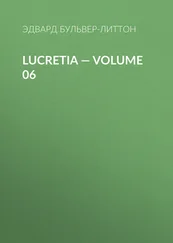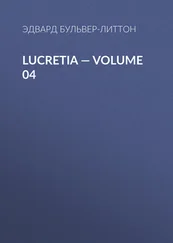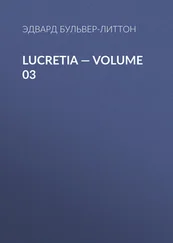Эдвард Бульвер-Литтон - My Novel — Volume 10
Здесь есть возможность читать онлайн «Эдвард Бульвер-Литтон - My Novel — Volume 10» — ознакомительный отрывок электронной книги совершенно бесплатно, а после прочтения отрывка купить полную версию. В некоторых случаях можно слушать аудио, скачать через торрент в формате fb2 и присутствует краткое содержание. Жанр: foreign_prose, literature_19, Европейская старинная литература, foreign_antique, на английском языке. Описание произведения, (предисловие) а так же отзывы посетителей доступны на портале библиотеки ЛибКат.
- Название:My Novel — Volume 10
- Автор:
- Жанр:
- Год:неизвестен
- ISBN:нет данных
- Рейтинг книги:4 / 5. Голосов: 1
-
Избранное:Добавить в избранное
- Отзывы:
-
Ваша оценка:
- 80
- 1
- 2
- 3
- 4
- 5
My Novel — Volume 10: краткое содержание, описание и аннотация
Предлагаем к чтению аннотацию, описание, краткое содержание или предисловие (зависит от того, что написал сам автор книги «My Novel — Volume 10»). Если вы не нашли необходимую информацию о книге — напишите в комментариях, мы постараемся отыскать её.
My Novel — Volume 10 — читать онлайн ознакомительный отрывок
Ниже представлен текст книги, разбитый по страницам. Система сохранения места последней прочитанной страницы, позволяет с удобством читать онлайн бесплатно книгу «My Novel — Volume 10», без необходимости каждый раз заново искать на чём Вы остановились. Поставьте закладку, и сможете в любой момент перейти на страницу, на которой закончили чтение.
Интервал:
Закладка:
I will explain later."
"Then," said the countess aloud, after a glance of surprise at her son, "I must insist on your performing this visit, my dear madam, and you, Signorina. In truth, I have something to say confidentially to—"
"To me," interrupted Riccabocca. "Ah, Madame la Comtesse, you restore me to five-and-twenty. Go, quick, O jealous and injured wife; go, both of you, quick; and you, too, Harley."
"Nay," said Lady Lansmere, in the same tone, "Harley must stay, for my design is not at present upon destroying your matrimonial happiness, whatever it may be later. It is a design so innocent that my son will be a partner in it."
Here the countess put her lips to Harley's ear, and whispered. He received her communication in attentive silence; but when she had done, pressed her hand, and bowed his head, as if in assent to a proposal.
In a few minutes the three ladies and Leonard were on their road to the neighbouring cottage.
Violante, with her usual delicate intuition, thought that Leonard and Helen must have much to say to each other; and (ignorant, as Leonard himself was, of Helen's engagement to Harley) began already, in the romance natural to her age, to predict for them happy and united days in the future. So she took her stepmother's arm, and left Helen and Leonard to follow.
"I wonder," she said musingly, "how Miss Digby became Lord L'Estrange's ward. I hope she is not very rich, nor very high-born."
"La, my love," said the good Jemima, "that is not like you; you are not envious of her, poor girl?"
"Envious! Dear mamma, what a word! But don't you think Leonard and Miss Digby seem born for each other? And then the recollections of their childhood—the thoughts of childhood are so deep, and its memories so strangely soft!" The long lashes drooped over Violante's musing eyes as she spoke. "And therefore," she said, after a pause,—"therefore I hoped that Miss Digby might not be very rich nor very high-born."
"I understand you now, Violante," exclaimed Jemima, her own early passion for match-making instantly returning to her; "for as Leonard, however clever and distinguished, is still the son of Mark Fairfield the carpenter, it would spoil all if—Miss Digby was, as you say, rich and high-born. I agree with you,—a very pretty match, a very pretty match, indeed. I wish dear—Mrs. Dale were here now,—she is so clever in settling such matters."
Meanwhile Leonard and Helen walked side by side a few paces in the rear. He had not offered her his arm. They had been silent hitherto since they left Riccabocca's house.
Helen now spoke first. In similar cases it is generally the woman, be she ever so timid, who does speak first. And here Helen was the bolder; for Leonard did not disguise from himself the nature of his feelings, and Helen was engaged to another, and her pure heart was fortified by the trust reposed in it.
"And have you ever heard more of the good Dr. Morgan, who had powders against sorrow, and who meant to be so kind to us,—though," she added, colouring, "we did not think so then?"
"He took my child-angel from me," said Leonard, with visible emotion; "and if she had not returned, where and what should I be now? But I have forgiven him. No, I have never met him since."
"And that terrible Mr. Burley?"
"Poor, poor Burley! He, too, is vanished out of my present life. I have made many inquiries after him; all I can hear is that he went abroad, supposed as a correspondent to some journal. I should like so much to see him again, now that perhaps I could help him as he helped me."
"Helped you—ah!"
Leonard smiled with a beating heart, as he saw again the dear prudent, warning look, and involuntarily drew closer to Helen. She seemed more restored to him and to her former self.
"Helped me much by his instructions; more, perhaps, by his very faults. You cannot guess, Helen,—I beg pardon, Miss Digby, but I forgot that we are no longer children,—you cannot guess how much we men, and more than all, perhaps, we writers whose task it is to unravel the web of human actions, owe even to our own past errors; and if we learned nothing by the errors of others, we should be dull indeed. We must know where the roads divide, and have marked where they lead to, before we can erect our sign-post; and books are the sign-posts in human life."
"Books! and I have not yet read yours. And Lord L'Estrange tells me you are famous now. Yet you remember me still,—the poor orphan child, whom you first saw weeping at her father's grave, and with whom you burdened your own young life, over-burdened already. No, still call me Helen—you must always be to me a brother! Lord L'Estrange feels that; he said so to me when he told me that we were to meet again. He is so generous, so noble. Brother!" cried Helen, suddenly, and extending her hand, with a sweet but sublime look in her gentle face,—"brother, we will never forfeit his esteem; we will both do our best to repay him! Will we not? —say so!"
Leonard felt overpowered by contending and unanalyzed emotions. Touched almost to tears by the affectionate address, thrilled by the hand that pressed his own, and yet with a vague fear, a consciousness that something more than the words themselves was implied,—something that checked all hope. And this word "brother," once so precious and so dear, why did he shrink from it now; why could he not too say the sweet word "sister"?
"She is above me now and evermore!" he thought mournfully; and the tones of his voice, when he spoke again, were changed. The appeal to renewed intimacy but made him more distant, and to that appeal itself he made no direct answer; for Mrs. Riccabocca, now turning round, and pointing to the cottage which came in view, with its picturesque gable-ends, cried out,
"But is that your house, Leonard? I never saw anything so pretty."
"You do not remember it then," said Leonard to Helen, in accents of melancholy reproach,—"there where I saw you last? I doubted whether to keep it exactly as it was, and I said, '—No! the association is not changed because we try to surround it with whatever beauty we can create; the dearer the association, the more the Beautiful becomes to it natural.' Perhaps you don't understand this,—perhaps it is only we poor poets who do."
"I understand it," said Helen, gently. She looked wistfully at the cottage.
"So changed! I have so often pictured it to myself, never, never like this; yet I loved it, commonplace as it was to my recollection; and the garret, and the tree in the carpenter's yard."
She did not give these thoughts utterance. And they now entered the garden.
CHAPTER IV
Mrs. Fairfield was a proud woman when she received Mrs. Riccabocca and Violante in her grand house; for a grand house to her was that cottage to which her boy Lenny had brought her home. Proud, indeed, ever was Widow Fairfield; but she thought then in her secret heart, that if ever she could receive in the drawing-room of that grand house the great Mrs. Hazeldean, who had so lectured her for refusing to live any longer in the humble, tenement rented of the squire, the cup of human bliss would be filled, and she could content edly die of the pride of it. She did not much notice Helen,—her attention was too absorbed by the ladies who renewed their old acquaintance with her, and she carried them all over the house, yea, into the very kitchen; and so, somehow or other, there was a short time when Helen and Leonard found themselves alone. It was in the study. Helen had unconsciously seated herself in Leonard's own chair, and she was gazing with anxious and wistful interest on the scattered papers, looking so disorderly (though, in truth, in that disorder there was method, but method only known to the owner), and at the venerable well-worn books, in all languages, lying on the floor, on the chairs—anywhere. I must confess that Helen's first tidy womanlike idea was a great desire to arrange the litter. "Poor Leonard," she thought to herself, "the rest of the house so neat, but no one to take care of his own room and of him!"
Читать дальшеИнтервал:
Закладка:
Похожие книги на «My Novel — Volume 10»
Представляем Вашему вниманию похожие книги на «My Novel — Volume 10» списком для выбора. Мы отобрали схожую по названию и смыслу литературу в надежде предоставить читателям больше вариантов отыскать новые, интересные, ещё непрочитанные произведения.
Обсуждение, отзывы о книге «My Novel — Volume 10» и просто собственные мнения читателей. Оставьте ваши комментарии, напишите, что Вы думаете о произведении, его смысле или главных героях. Укажите что конкретно понравилось, а что нет, и почему Вы так считаете.












